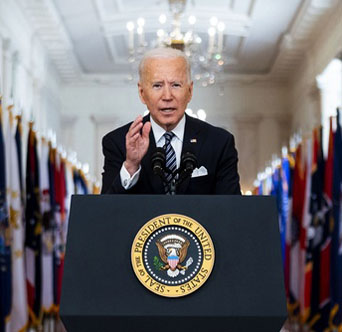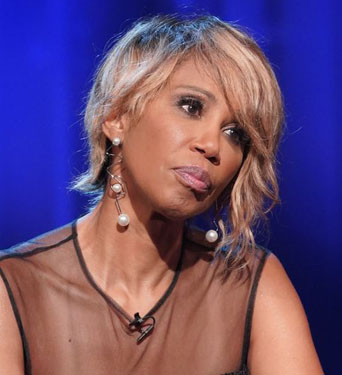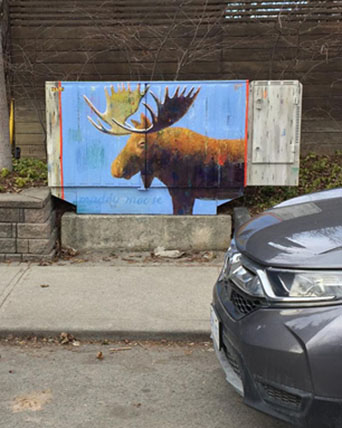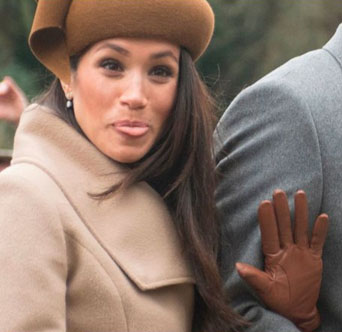Biden’s “bizarre closing” on March 11, the real tragedy of Harry and Meghan, and the future of the British monarchy in Canada
Mar 14th, 2021 | By L. Frank Bunting | Category: In Brief
SPECIAL FROM L. FRANK BUNTING, PANCAKE BAY/ALONA BAY, ONTARIO. Some on Twitter have been reacting with bemusement to President Biden’s closing remarks in his first televised address to the American people this past Thursday night : “Thank you for taking the time and listening. I look forward to seeing you.”
It is the very last sentence that especially strikes some Twitter denizens in at least my region of the ornithological universe as a “bizarre closing.”
BUT IS IT REALLY BIZARRE? I’m guessing that even left-wing commentators like Bill Maher might just indulgently laugh this off as a little too Bidenesque. It is not as if President Biden is having a Zoom meeting with half a dozen Delaware friends and neighbours he is expecting to meet again at Easter, in person. And so forth.
On the other hand, it may not be altogether intellectually reprehensible to contemplate the prospect that “I look forward to seeing you,” whatever else, could also have authentic American political weight and heft in our present time.
The excellent Mr.Maher notwithstanding (possibly), it does seem most of those most critical of and/or amused by the “bizarre closing” of President Biden’s first TV address would agree they are right-wing and/or red-state.
My mind was at least opened to a different perspective by a tweet I recently stumbled into from the counterweights editors, in response to the “bizarre closing” point of view :
“Or is this just another example of the difference between Republicans and Democrats in USA today? Why shouldn’t a guy who used to ride the train back from DC every night look forward to casually bumping into the American people? As would sometimes happen with Obama etc!”
That exhausts my interest in this subject. Now I want to turn to “Meghan Markle Has a Quarrel With the Queen, But Why?” and, eg, “Meghan Markle Racism Revelations Are “Shocking, But Not Surprising” to People of Color in UK.”
HARRY AND MEGHAN. I don’t have great interest in all this. But I was struck by a passage from the second article (on Markle and racism etc) : “Pioneering British journalist Trisha Goddard says Markle’s revelations were ‘shocking, but not surprising,’ and that coverage of Markle in the UK has always carried an ‘undercurrent’ of racism …”

The second article authors also spoke with “Novara Media’s Ash Sarkar, who says the monarchy is a ‘feudal institution’ that entrenches class inequality in British society. ‘You can’t have an institution which is premised on the superiority of bloodline and have it not be racist.’”
Judging from what I’ve seen of her UK TV career on YouTube, it would seem risky to challenge anything Ash Sarkar says – if there were any chance she’d hear about it. But since she won’t in this case I’ll just say that I agree with the broad thrust of her comment about the monarchy as a feudal institution. But I’d ask as well, what if Harry and Meghan’s son Archie was the future king, instead of William and Catherine’s son George?
Archie is mixed race, like his mother, and wouldn’t that in at least some degree begin to qualify the inherent racism of the British monarchy (which, to get somewhat technical, has actually been more German than British since George I).
Isn’t this the real tragedy of what now appears to be the fate of Harry and Meghan?

It would have been better if William himself had married, say, the daughter of a former Maharaja in one of the former princely states of the British Raj. But Harry and Meghan (happy and in good favour at Buckingham Palace) could have been a step in this direction – especially apt for the highly multicultural 21st century Commonwealth, of which the British monarch remains the ceremonial Head – for the time being.
Finally, I’d draw attention to The Economist magazine’s summary take on Harry and Meghan – “Being a royal is about serving the institution. It does not work for those seeking individual attention.”
As a (northern) North American this strikes me as at bottom just yet another expression of the ancient snobbery that flows from what Ash Sarkar calls the “class inequality in British society” that continues to haunt the UK today, even or perhaps especially with Brexit.
BRITISH MONARCHY IN CANADA. From here I feel driven to say (as it turns out all too many) very final words on the future of the British monarchy in Canada where I have lived all my life.
Like many others I was pleased to see that “Harry and Meghan’s Oprah interview sparks debate over the monarchy in Canada.” I was even satisfied enough that “Trudeau skates past questions about the future of the monarchy in Canada.” (The prime minister’s view is : “If people want to later talk about constitutional change … that’s fine. They can have those conversations. But right now, I’m not having those conversations.”)
This is not the time to actually abolish the monarchy in Canada, no doubt. But in what the Constitution Act 1982 calls our “free and democratic society” of the here and now I think it is important to keep talking about the subject, louder and louder, until the time finally does come.
Like others as well I am annoyed that there are so many headlines in Canada today like “Abolishing the monarchy in Canada would be ‘enormously difficult,’ experts say” ; “Royals’ reputation hit by bombshell Oprah interview, but opening Constitution a ‘Pandora’s box,’ say experts” ; “Time for Canada to retire the Queen? It’s not that simple … The Crown is more than a mere symbol – it’s wired into the basic structures of the state” ; “Canada’s anti-monarchists want a revolution and they should admit it” ; and “Abolish the monarchy? In Canada, it would be a royal pain in the butt … Ironically, Brits could ditch the Queen faster than we could.”
I’ve been intermittently looking into the matter for some 20 years now, and I have become altogether persuaded that it’s just not all that difficult. For the non-monarchy options available to the present Canadian parliamentary democracy, eg, see India or Germany today (option A) or Ireland or Iceland today (option B – which I prefer myself). The world being as varied as it is now, one could go on and on. But this seems to me the most sensible place to land.
Our present system of government would in any case carry on just as it does now (allowing for a few ultimate changes in names and whatnot), except that the governor general would be either indirectly (option A) or directly (option B) elected, instead of chosen by the prime minister.
(And we would finally dispense with the polite legal fiction that the Governor General represents the British monarch – as opposed to the Canadian people, the current real-world ultimate sovereign power in our working and still to-no-small-extent “unwritten” parliamentary democratic constitution.)
It is true that the federal parliament and all 10 provincial legislatures will have to agree to some specifically Canadian blending of the possible real-world options. And I agree that this will only be very likely when a very large percentage of the Canadian people today – in all parts of the country – have come to agree that they really do want to finally take responsibility for the ultimate sovereignty of the governments of Canada and its provinces themselves.

We are not quite ready to do this yet. But the percentage of Canadians favouring the monarchy has not been a majority since the middle of the 1990s, and it continues to decline.
Let the talking go on, as we discover more about ourselves in our remarkable present diversity, from First Nations to new Canadian citizens from around the modern global village.
The pundits who keep urging the difficulty of the altogether independent Canadian democratic journey still ahead are just timid Canadian citizens, who fear the future and don’t want to see the end of the British monarchy in Canada ever.
They are like administrators who complain about plans for the latest office reorganization, on the grounds that it will be too costly (and complicated) to change all the names on the doors.





Thanks for this article. Nice shift from a ‘today’s (US) headline’ to an ongoing issue here in Canada. The suggestion of how to move the conversations about the monarchy’s failure is useful. In the last few weeks, first the recent Governor General expose, then the public naming of the underlying racism/colonial view of the British monarchy/ institution may very well trigger a domino effect of awareness.
My contribution is that a few years ago I spoke to the great grandson of the Indigenous Chief who was formally introduced to Queen Victoria directly. (He was part of a Canadian group that travelled to England to meet her). The Chief took the opportunity to ask her to recognize their status as a First Nation. Apparently she gave the ‘we’ll get back to you’ equivalent phase in use at that time, implying don’t hold your breath’. The great grandson had strong pride knowing that his ancestor ‘spoke truth to power’. He was also very pleased that although many settler Canadians are not aware that the Chief was speaking to the legal ‘head of government in Canada’, that Indigenous descendants knew, passing on that story.
Let the informed conversations begin!